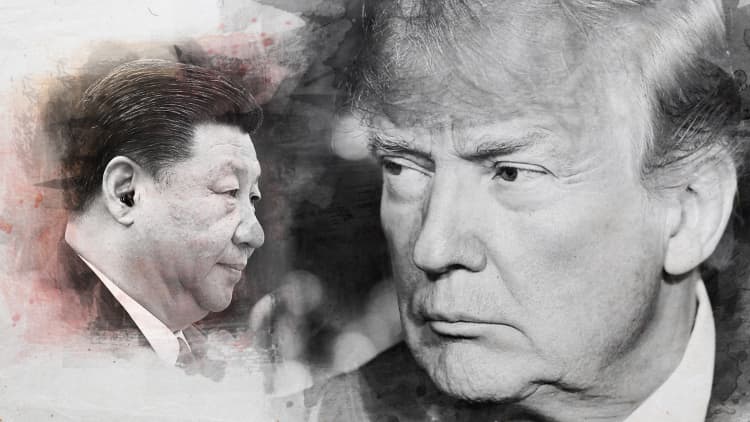President Donald Trump's trade war with China may lead to higher PC graphics card prices this holiday.
The Trump administration's latest tariffs of 10 percent on $200 billion of imports from China took effect Monday. Trump, in a Sept. 17 statement, said the tariffs would rise to 25 percent on Jan. 1, 2019.
Trump's 10 percent tariff will apply to graphics cards assembled in China, according to two industry sources familiar with the matter. Cards made in Taiwan are not affected by the tariffs, sources said.
AMD and Nvidia are the two major chip suppliers for the gaming graphics card market. The tariffs apply to individually sold graphics cards and not cards already inside prebuilt PC systems, one of the sources said.
Shrout Research's Ryan Shrout said this is a problem because the "vast majority" of graphics cards are currently made in China.
"PC gamers will likely see increased prices on graphics cards with the implementation of this tariff, an unfortunate side affect of the continued policies of the Trump administration," Shrout wrote in an email Monday. "This is unfortunate timing for NVIDIA as it was already under pressure for the prices of its new RTX product family, and it is unlikely that it or its partners will simply absorb the added costs of the tariff."
Nvidia's RTX gaming card line was launched last week. Bank of America Merrill Lynch told its clients Monday the Trump tariffs could temporarily raise prices for the company's new RTX cards by 5 percent to 10 percent in the coming months. When contacted by CNBC, several other Wall Street analysts were unaware that the graphics cards would be affected by the tariffs.
The gaming graphics business represented nearly 60 percent of Nvidia's sales in its July quarter. RBC Capital estimated the graphics segment generated about one-quarter of AMD's revenue last year.
Shrout said gamers will not take any price increases lightly and will "lash out." He expects some graphics card manufacturers to transfer production to Taiwan to avoid the tariffs, but that will take time.
When asked for comment, both AMD and Nvidia told CNBC the companies are working with their graphics card manufacturing partners to alleviate the impact of the tariffs on Chinese goods.
On Sept. 18, the Office of the United States Trade Representative published the list of Chinese imports affected by the administration's 10 percent tariffs.
The listing included multiple product categories with "printed circuit assemblies" and "electronic calculating machines" in the descriptions. It is not clear which product subheader graphics cards are categorized under.
The trade office did not respond to a request for comment on whether the graphics cards would face the new tariffs.
When asked about the tariffs, AMD sent this statement:
"We are working closely with our customers and partners to mitigate potential impacts related to the tariffs on AMD-based products. From all that we know today, we do not expect the US tariffs to have a material impact on our business."
Graphics card makers MSI, Gigabyte and EVGA did not respond to requests for comment.
An Nvidia spokesperson said its partners are already moving production to other countries in a statement:
"There's relatively little direct impact on us. We understand that most of our partners have moved or are moving their impacted assembly work to Taiwan and Mexico, which aren't affected by the tariffs."
WATCH: This trade deal may be what Trump needs to take on China



